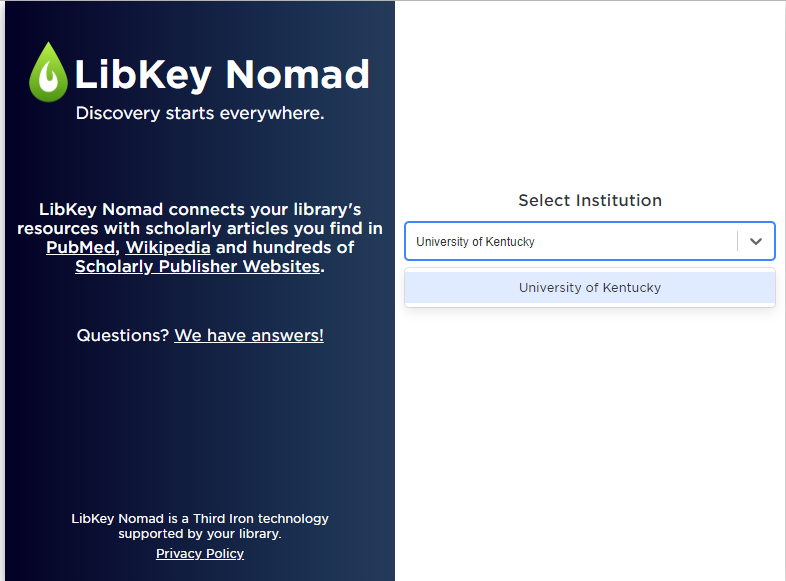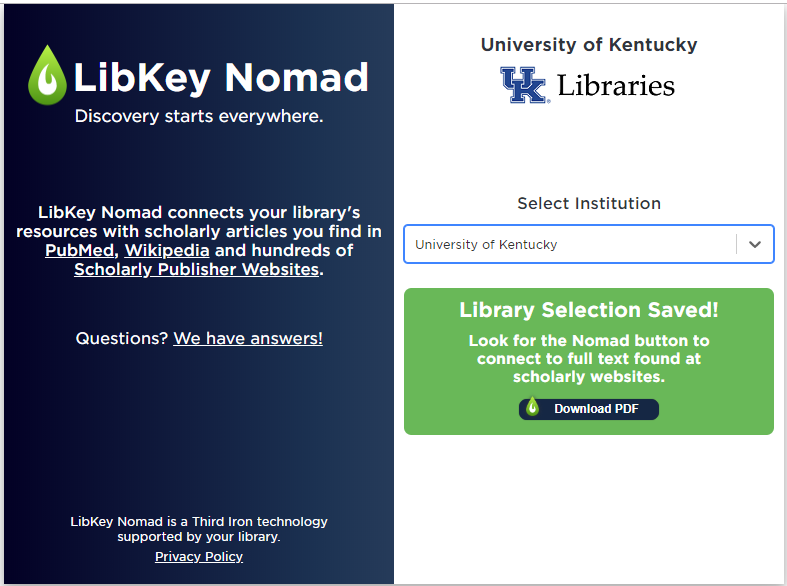Core Databases
- Academic Search Complete This link opens in a new windowGood place to begin your research. Contains both scholarly and non-scholarly sources in a broad range of subjects, including communications, journalism and telecommunications.
- Business Source CompletePeer-reviewed business journals, trade journals and general business magazines, use for any business topic including advertising, marketing, and public relations.
- Communication and Mass Media Complete (CMMC)Best source for scholarly articles on communication and mass media, including issues in journalism, telecommunications, and public relations.
- Polling the NationsA database of public opinion polls containing the full text questions and responses from 15,000 surveys conducted worldwide. *LIMITED to 4 simultaneous users
- ProQuest SciTech Premium Collection This link opens in a new windowContains articles on science and technology research, including telecommunications and computer and information systems.
- StatistaContains statistics, reports, and infographics on a wide variety of topics and industries.
- Web of Science Core Collection This link opens in a new windowInterdisciplinary science database containing worldwide scholarly research.
Academic Search Complete Search Results
This clickable image is focused on Academic Search Complete search results and provides pop-ups explaining each important element.

Find Other Databases
UK subscribes to hundreds of databases in a variety of disciplines. You'll likely find some relevant articles in Academic Search Complete, but it's good to know about the databases in your area of interest.
Research Guides provide the key databases in many disciplines plus other relevant library resources related to the subject.
Searching the database of databases allows you to find databases by their name or subject area(s).
New York Times
Interested in accessing the New York Times online? UK provides access to students, faculty, and staff. Sign up below with the first link, and use the second link to access it after registering.
- New York Times Digital Edition (New Users)You must register for an account through this link. Once you register, you have access to the New York Times website through the University of Kentucky.
- New York Times Digital Edition (Registered Users)Once you have registered for an account through the new user link, you have an basic digital access subscription to the New York Times through the University of Kentucky. This subscription includes unlimited access on NYTimes.com, archives (dating back to 1851) (5 PDF article downloads from Times Machine per user per day); augmented reality/virtual reality (found in the App), daily 360 content, podcasts, all multimedia, newsletters, Spanish and Mandarin Chinese versions of NYTimes.com, and unlimited access to The New York Times in Education website and The Learning Network.
Newspapers
- Newspapers Research GuideA guide to UK Libraries' collection of local, national , international, and historical newspapers and how to search for them and others.
- Access World NewsDatabase of U.S. newspapers, including the Lexington Herald-Leader and other Kentucky newspapers, and foreign English-language newspapers and news resources.
- Louisville Courier-Journalvia Proquest. Full-text searchable (Jan 2, 1999 - present)
- Lexington Herald-Leader Digital Archivevia Access World News. Full-text searchable (1983 - present)
- Nexis UniDatabase of newspapers, magazines, journals and international newspapers (in English and non-English languages). Includes legal and company financial information.
- ProQuest News and Newspapers Combined SearchNewspaper database includes Louisville Courier-Journal, Wall Street Journal, and New York Times Historical Edition.
- Wall Street Journal (various editions)The Wall Street Journal Eastern Edition and Online Edition
Fact Checking and Reporting
- Center for Investigative ReportingA non-profit investigative journalism organization which co-produces with PRX the nationally distributed “Reveal” radio show and podcast.
- FactCheck.orgA non-partisan, non-profit political fact-check website that summarizes and analyzes public policy issues. Operated and maintained by the Annenberg Public Policy Center of the University of Pennsylvania.
- American Press InstituteA nonprofit educational organization working to improve public-service journalism and achieve a sustainable news industry.
- FAIR: Fairness & Accuracy in ReportingA non-profit anti-censorship organization, offering criticism of media bias and censorship since 1986.
- Pew Research CenterA non-partisan public opinion research organization that studies attitudes toward politics and major policy issues and tracks social and demographic trends.
- The Poynter InstituteNews on reporting, fact checking, ethics and jobs in journalism.
LibKey Nomad
LibKey Nomad also offers privacy safeguards, in that it:
- doesn’t require a personal account;
- doesn’t cache article requests or EZproxy credentials; and
- is only active when a user is on the website of a scholarly publisher or database (i.e., PubMed, CINAHL).
Install the Extension
- Download the extension from the Chrome Web Store.
- Type in and select the University of Kentucky as your institution.

- That's it - now explore sites, search databases, and access via journal websites.
Types of Sources
Not sure of the differences between primary, secondary, and tertiary sources? This guide provides definitions of each with examples.
Browse Journals
Want to browse journals much like you would view them on a bookshelf? Learn more about Browzine in order to do that and more!
How to Get Full Text

When searching for journal articles, you will notice the View Now button on many of your search results. Clicking on the View Now button will lead you to the article itself, links to the full text of the article, or it will let you know that we do not have full text of the article.
If the full text is not available, you can search InfoKat Discovery for a print copy of the article. If we do not have a print copy, you can request an interlibrary loan (ILL). For articles, these usually arrive pretty quickly.
Have questions? Ask Us for help.
Google Scholar

It's a good idea to check Google Scholar along with other databases. Follow these instructions to connect Google Scholar results to UK's full text holdings.

